Ever wondered what makes a top-notch hospitality resume stand out in today’s job market?
Making a great hospitality resume is key to catching the eye in the bustling service industry. With over 1.9 million hospitality jobs open in the U.S1, your resume must show off your experience and special skills. The need for standout resumes is growing, especially with a 15% growth expected for food service managers by 20301.
Adding content that fits the job you want can really boost your chances. It’s important for both human recruiters and AI systems to notice you.
Let’s dive into what makes a hospitality resume truly shine. Think about how your resume stacks up against these industry standards.
Key Takeaways
- Standout resumes are crucial in a competitive hospitality job market.
- Over 1.9 million hospitality jobs are currently unfilled in the U.S.
- Incorporating tailored content can enhance your resume’s effectiveness.
- A well-structured resume improves visibility to recruiters.
- Understanding industry demands can help in crafting a relevant resume.
Understanding the Importance of a Hospitality Resume
A well-crafted hospitality resume is key in a competitive job market. It’s not just about showing off your skills. It’s also about making a strong first impression. Studies show that 66% of hiring managers believe a good resume can sway their decision2.
The hospitality industry is growing fast. This means more jobs but also more competition3.
Why a Strong Resume Matters
Having a strong resume can really help you get noticed. Those with customer service experience are 29% more likely to get an interview2. Hiring managers only glance at resumes for about 6-7 seconds. So, it’s important to make your qualifications clear and concise.
Key Elements of the Hospitality Industry
Knowing what the hospitality industry values is key. 82% of hospitality workers say employers want soft skills like communication and problem-solving2. Hard skills, like using booking software, are also important, making up 57% of what resumes should highlight.
By focusing on both soft and hard skills, you show you’re a great fit. It’s important to show you can adapt and organize well. This meets the changing needs of guests and employers.
Tailoring Your Resume for the Hospitality Sector
To make a resume that really catches the eye, I do a lot of research on employers. I learn what they need and tailor my resume to fit the job description. I make sure to include important keywords like customer service and problem-solving. This way, my application shows I’m ready to join their team.
Researching the Employer
Doing deep research on employers gives me valuable insights. A good hospitality resume shows the skills needed for the job. Using industry terms and keywords in my resume helps me get past ATS by 20%4. Plus, only 15% of applicants tailor their resumes, giving me an advantage in a busy job market4.
Adding Relevant Keywords
It’s key to include the right keywords in your resume. Employers look for specific traits in job postings. Resumes with numbers and achievements get 65% more interview invites than those without5. Also, focusing on the job’s specific skills can make your resume 50% more effective5. By choosing the right words, I meet the employer’s needs and show off my skills.
Essential Sections of a Hospitality Resume
A good hospitality resume has key sections that show off your skills. It’s important to present my info clearly. This helps hiring managers find what they need, like hospitality contact information, a strong summary, and work experience in hospitality.
Contact Information
At the top, I list my full name, phone number, and a professional email. This hospitality contact information must be current to avoid any issues. Since 85% of hiring managers like simple resumes, keeping my contact info brief is key6.
Summary Statement
A summary is like my elevator pitch. It should be short, 2-3 sentences, and show how my skills match the job. 80% of interviewers look for this6. A good summary helps me stand out among other candidates.
Work Experience
In the work experience in hospitality section, I highlight my roles, duties, and achievements. Over 60% of recruiters quickly scan resumes, so bullet points are crucial6. By sharing numbers, like managing 150 customers or getting a 98% satisfaction rate, I show my value7. This makes my past work look impressive and shows I’m ready for new roles.
| Section | Description |
|---|---|
| Contact Information | Full name, phone number, and professional email address to ensure easy communication. |
| Summary Statement | Concise section summarizing qualifications and aspirations, important for initial impressions. |
| Work Experience | Details about roles and quantifiable achievements demonstrating my contributions in the hospitality sector. |
Showcasing Your Skills in Hospitality
Skills are key in my hospitality resume. I need to show both hard skills and soft skills. Hard skills are technical, like knowing POS systems and food safety rules. Soft skills are about how we interact with others, making guest experiences better.
Hard Skills vs. Soft Skills
In the competitive world of hospitality, job ads look for a mix of essential hospitality skills. Research shows hiring managers value soft skills, like customer service, more than hard skills about 70% of the time9. This shows how important emotional intelligence and empathy are for great guest experiences.
Examples of Essential Skills
To show my skills well, I focus on these key areas on my resume:
| Skill Category | Examples | Why It’s Important |
|---|---|---|
| Hard Skills | POS System Knowledge Food Safety Standards |
Essential for operational efficiency and compliance. |
| Soft Skills | Communication Teamwork Problem-Solving |
Enhances customer satisfaction and creates a positive work environment. |
| Customer Service | Empathy and Active Listening Conflict Resolution |
Directly impacts guest experience and loyalty. |
| Adaptability | Handling Unexpected Situations | Facilitates smooth operations during busy periods. |
It’s crucial to show how these skills have helped in the past. For example, good communication can boost customer satisfaction by up to 25%9. This lets me show how my skills make a real difference.
Highlighting Your Education and Certifications
I know that my education and certifications can really boost my resume in hospitality. Having a strong background in hospitality education is key to standing out. Even if a degree isn’t required, the right experience and certifications can make a big difference.
Relevant Educational Background
Employers really value what you’ve learned. In fact, 90% of them look at your education first10. Getting a degree or specialized certifications shows you have the skills needed for the job. Studies show that highlighting your education can increase hiring interest by 30% in specialized fields10.
Professional Development and Certifications
I always look for ways to grow through industry-specific certifications. Many jobs want both experience and education. Having certifications like ServSafe or hospitality management can really help you stand out11. It shows you’re serious about doing well in the industry and can make you more employable7.
| Type of Education/Certification | Impact on Employment |
|---|---|
| Bachelor’s Degree in Hospitality Management | Essential for managerial roles; improves profile significantly. |
| Certified Hospitality Professional | Demonstrates advanced skills and knowledge; highly regarded. |
| ServSafe Certification | Increases employability in food service roles; crucial for compliance. |
| Online Hospitality Courses | Shows commitment to continuous learning; may appeal to innovative employers. |
Continuous learning and certifications not only improve my skillset but also make my resume more appealing to recruiters.
By highlighting my education and certifications, I show I’m ready for the hospitality industry’s challenges and opportunities11.
The Role of Additional Experience in Your Resume
Adding extra experience like volunteering or internships makes my resume stand out. These roles help me gain important skills and show my dedication to the field. By volunteering in hospitality, I learned a lot and made connections with industry pros, helping me grow professionally.
Volunteering in Hospitality
Helping out at hospitality events gave me a real look at how to interact with guests. For example, working in community groups can help over 100 families a week. This shows how valuable experience in service is12. It also helped me understand what guests want, which is key to keeping them happy.
Internship Experience
My internships are a big part of my resume, as most employers look for this experience12. Internships helped me improve my communication skills and learn to work with different teams. They also let me try out different careers and get a close look at how things work. Plus, about 35% of internships turn into full-time jobs13, making them very valuable.
| Type of Experience | Benefits |
|---|---|
| Volunteering | Network building, skill enhancement, community impact |
| Internships | Practical knowledge, potential for full-time offers, professional development |
Crafting a Professional Summary That Shines
Your professional summary is key to making a strong first impression. It should be short but impactful, highlighting your skills and goals. Aim for 2-3 sentences to fit the brief time hiring managers glance at resumes, usually 7 to 30 seconds14. A good summary grabs the attention of hiring teams, helping you stand out among many applicants.
Key Components of a Summary
A great professional summary in hospitality should have a few key parts:
- Relevant Experience: Focus on jobs that match the job you’re applying for.
- Quantifiable Achievements: Use numbers like “100% customer satisfaction” to make your achievements clear.
- Powerful Action Words: Use words like “driving” and “transforming” to show what you’ve accomplished.
Tips for Writing an Engaging Summary
To write a compelling resume summary, follow these tips:
- Use industry-specific language to show you know the field.
- Make each summary unique for each job you apply to, showing you’ve done your homework.
- Steer clear of generic phrases; a custom summary is more likely to catch the eye of automated systems.
- Use strong headlines to immediately showcase your skills and expertise.
By using these summary writing tips, you can craft a summary that grabs attention and clearly shows your professional strengths in hospitality15. Remember, recruiters are short on time, so every word matters.
| Component | Description |
|---|---|
| Relevant Experience | Tailor experience to match the job description. |
| Quantifiable Achievements | Include metrics that highlight your impact. |
| Action Words | Use verbs like “led,” “achieved,” and “enhanced.” |
| Industry Language | Utilize terms that resonate within the hospitality sector. |
| Customization | Adapt summaries for each job application. |
Common Mistakes in Hospitality Resumes
A well-made hospitality resume can really stand out to hiring managers. I see many mistakes that can hurt a candidate’s chances. Knowing these hospitality resume mistakes is key for anyone looking for a job.
Overloading with Information
Too much info on a resume can confuse hiring managers. Almost 20 percent of them spend less than 30 seconds on each resume, and 40 percent under a minute16. It’s better to focus on the most important experiences. I suggest keeping work history to 7 to 10 years. This way, it fits on one page, which is preferred by most17.
Using Unprofessional Formatting
Bad formatting can hurt your credibility. Typos are a big no-no, with 61 percent of hiring managers tossing resumes because of them16. Keep your resume clean and simple. Use clear fonts and don’t overdo it with colors. Highlight your achievements, like a 60% increase in lunch bookings, to impress17. Also, make sure to use contractions and possessive pronouns correctly. This shows you’re detail-oriented and professional.
Creating a Visually Appealing Resume
Making your hospitality resume stand out is key in today’s job market. With so many qualified candidates vying for jobs, grabbing the attention of hiring managers is crucial. Using the right resume formatting tips is essential to make your resume both beautiful and functional.
Choosing the Right Format
Choosing a clear, concise resume format is important. It helps make a strong first impression on busy hiring managers18. A visually appealing resume can catch the eye of recruiters, especially in fields like graphic design and advertising19.
Using fonts like Arial or Times New Roman is important. Readability greatly affects how your skills are seen19.
- Incorporate strategic color usage to highlight important sections.
- Include sufficient white space to enhance user-friendliness.
- Utilize bullet points for organizing information clearly and concisely.
Effective Use of Links and Graphics
Adding resume graphics can help you stand out. But, use them sparingly. A well-placed image or icon can highlight your achievements. Including industry keywords in your resume can help it pass through ATS, especially in hospitality18.
A well-made resume can lead to more job interviews. It can also boost your chances of getting the job you want19.
Final Tips for a Standout Hospitality Resume
As I finish my hospitality resume, I know how crucial it is to proofread carefully. Getting feedback from peers or industry pros is also key. Studies show that small mistakes can lead to being disqualified from up to 50% of jobs20.
I review my resume many times and use software to find errors. This is a big part of my tips for making a great resume.
After sending in my application, I make sure to follow up in a timely manner. This shows I’m still interested in the job. Research shows hiring managers look at resumes for just 6 seconds before deciding20.
This makes it even more important to make a good first impression. With a 73% turnover rate in the hospitality industry20, showing my commitment is crucial.
To make my resume stand out, I focus on structure, content, and being open to feedback. Every step, from proofreading to follow-up, helps me get noticed. Paying attention to these details can lead to better job opportunities21.
FAQ
What is the difference between a hospitality resume and other types of resumes?
A hospitality resume focuses on skills and experiences for the hospitality industry. This includes customer service, hotel management, and restaurant operations. It’s different from general resumes.
How do I tailor my hospitality resume for a specific job?
To tailor your resume, research the employer’s needs. Use keywords from the job description. Highlight your experiences that match the role. This makes your resume stand out to hiring managers.
What are the essential sections to include in a hospitality resume?
Include clear contact info and a compelling summary. List detailed work experience and skills. Focus on hard and soft skills for the industry.
How should I showcase my hospitality skills on my resume?
Showcase your skills by listing hard and soft skills. Give examples of using these skills in previous jobs. This shows your ability to perform well.
What qualifications should I list on my hospitality resume?
List your education, certifications (like ServSafe), and professional development. This shows your commitment and enhances your credentials.
Can additional experiences like volunteering boost my hospitality resume?
Yes, volunteering or internships show dedication and provide skills. They help you network and make your resume more appealing.
What makes a professional summary effective on a hospitality resume?
An effective summary clearly states your experience, achievements, and skills. Use specific results and action verbs to show your value to employers.
What common mistakes should I avoid when creating my hospitality resume?
Avoid too much information, unprofessional formatting, and irrelevant details. Keep it concise and organized for a good impression.
How can I make my hospitality resume visually appealing?
Use a simple layout with clear headings and spacing. Consider links to your LinkedIn or portfolio. But avoid too many graphics that distract.
What final steps should I take before submitting my hospitality resume?
Proofread your resume for errors. Get feedback from peers or professionals. Follow up after submitting to show your interest in the position.
Source Links
- Hospitality and catering Resume Examples & Templates (2025)
- 19 Successful Hospitality Resume Examples And Writing Tips for 2024
- Hospitality skills to build the perfect resume
- Hospitality Resume Examples & Writing Guide 2024
- How to write a hospitality resume, and land your ideal job
- Hcareers
- 7 essential skills to include on your hospitality resume
- What hospitality skills to include on your resume? (examples & writing tips)
- Hospitality skills to build the perfect resume – Hotelier & Hospitality Design
- How to List Education on a Resume: Guide
- Hcareers
- 9 Hospitality Resume Examples and Samples
- How to Make the Most of Your Hospitality Experience on Your Resume | ProSearch
- Resume Summary Examples That Get Results (Plus Tips & Templates to Write Your Own)
- 99+ Resume Summary Examples & Writing Guide (2025)
- Hcareers
- Common Mistakes Within Hospitality That Will Kill Your Resume
- 5 Steps Crafting an Award-Winning Hospitality Resume
- Why a well-designed resume is crucial for your job hunt
- Restaurant Software to Boost Sales & Profits | Altametrics
- 10 RESUME TIPS THAT CAN BENEFIT HOTEL MANAGEMENT PROFESSIONALS IN THEIR JOB HUNT



